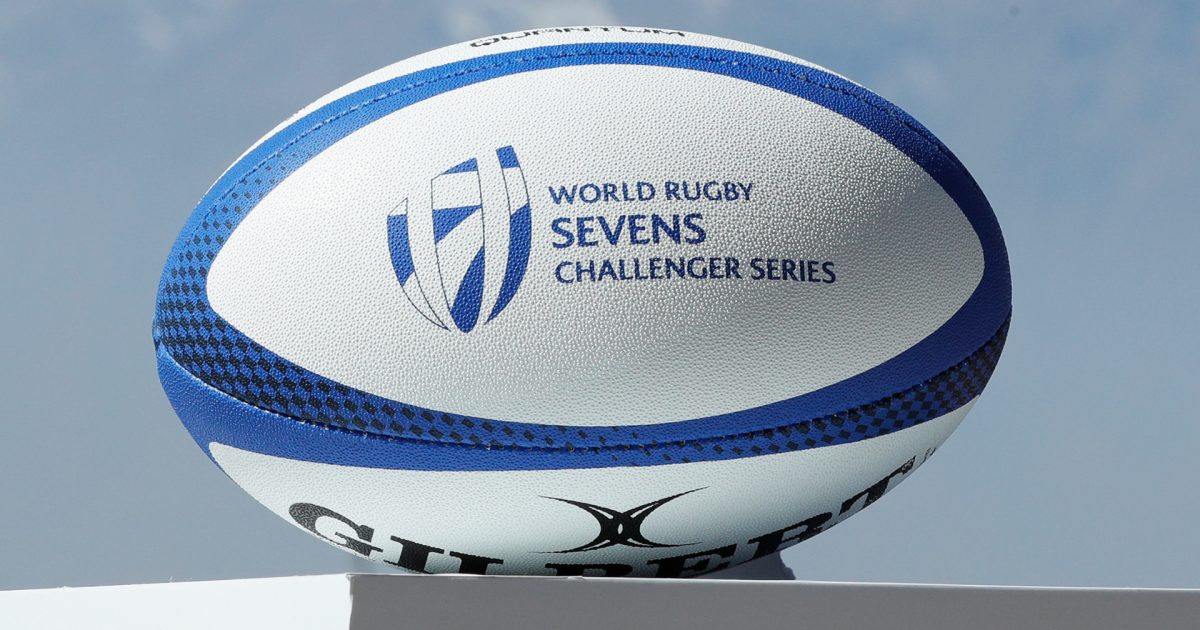Pools confirmed for opening round of HSBC Sevens Challenger 2024

The pools have been confirmed ahead of the opening round of the World Rugby HSBC Sevens Challenger 2024 at The Sevens Stadium in Dubai on 12-14 January.
The Dubai pool draw follows the recent announcement of the competition schedule which sees three rounds taking place over three continents between January and May.
The Challenger competition provides a clear promotion pathway to reach the pinnacle HSBC SVNS in 2025, with the top four placed men’s and women’s teams from the 2024 Challenger, based on cumulative series points at the conclusion of the third round, securing their opportunity to compete in the new high stakes relegation play-off competition at the SVNS Grand Final in Madrid on 31 May – 2 June, 2024 against the teams ranked ninth to 12 th from HSBC SVNS 2024.
Four successful nations from this Grand Final play-off will secure their place in HSBC SVNS 2025, while the other four teams will compete in their regional qualification tournaments to earn the right to compete in the World Rugby HSBC Sevens Challenger 2025.
The pool draw, which took place during the HSBC SVNS 2024 opening round in Dubai last weekend, produced some exciting match-ups.
Three teams in the men’s competition – Uruguay, Japan and Kenya – have already booked their places at the Olympic Games Paris 2024 and they headline pools A, B and C respectively. All teams qualified for the Challenger 2024 through regional competitions.
The pools for the opening round of the HSBC Sevens Challenger have arrived 🤩
The opening round will take place in Dubai on 12-14 January 🙌#7sChallengerSeries pic.twitter.com/jNnVELrYic
— HSBC SVNS (@SVNSSeries) December 5, 2023
Men’s pools:
Pool A: Uruguay, Hong Kong China, Papua New Guinea, Georgia
Pool B: Japan, Tonga, Chile, Portugal
Pool C: Kenya, Germany, Uganda, Mexico

Women’s pools:
Pool A: Belgium, Thailand, Papua New Guinea, Uganda
Pool B: China, Czechia, Mexico, Kenya
Pool C: Poland, Hong Kong, Paraguay, Argentina

The Challenger tournaments replicate the Olympic Games competition format, with the 12 teams drawn into three pools of four teams each. The top two from each pool as well as the two best third-placed finishers will qualify for the knockout stages with quarter-finals and semi-finals leading to the third place and gold medal matches.
The Sevens Challenger was introduced in February 2020 to boost the development of rugby sevens across the globe and provide a clear promotion pathway to reach the top level of global rugby sevens for the short format of the game which has experienced huge growth over the past two decades since the introduction of the global sevens series and becoming an Olympic sport at the Rio 2016 Games.
The 2024 edition of the Challenger competition kicks off with combined events at the Sevens Stadium in Dubai on 12-14 January, followed by Estadio Charrúa in Montevideo, Uruguay on 8-10 March before standalone women’s and men’s events at Henryk Reyman’s Municipal Stadium in Krakow, Poland and Dantestadion in Munich, Germany respectively on 18-19 May.
HSBC World Rugby Sevens Challenger 2024 dates:
Dubai, UAE – 12-14 January (men and women)
Montevideo, Uruguay – 8-10 March, 2024 (men and women)
Krakow, Poland – 18-19 May, 2024 (women)
Munich, Germany –18-19 May, 2024 (men)
Speaking from Dubai, World Rugby Chief Competitions and Performance Officer Nigel Cass said: “The pool draw for the opening round of the World Rugby HSBC Sevens Challenger 2024 is an exciting moment allowing the teams and fans to look forward to the competition in earnest as we approach the tournament kick-off in just over a month.
“As we saw with the HSBC SVNS event last weekend, The Sevens Stadium in Dubai provides an excellent venue with a huge history of world class rugby sevens and we look forward to working together with the hosts to deliver another memorable sevens event.
“The Challenger is a vitally important tournament that provides meaningful competition and a clear promotion pathway to reach the pinnacle HSBC SVNS and there has never been a more exciting time for sevens with the revamped HSBC SVNS and the road to the Olympic Games Paris 2024.”


















































